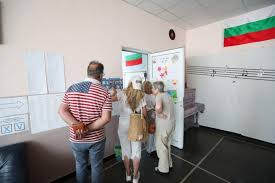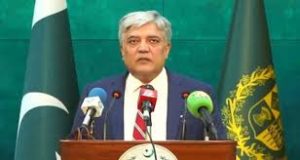Bulgaria holds another snap election, more instability seen ahead

SofiaL: Bulgarians head to the polls on Sunday for their sixth parliamentary election in three years, but analysts say the vote is unlikely to yield a stable government that can end prolonged political instability and unblock economic reforms.
Bulgaria, the poorest member of the European Union, has been plagued by revolving-door governments since anti-corruption protests in 2020, with a series of elections producing shaky coalitions that swiftly crumbled.
The latest opinion polls suggest no party will win a majority, setting the stage for a new round of coalition talks once the votes are in.
“I am voting for a better future,” said Antoaneta Hristova, 55, who works in the marketing and PR business.

“But, to be honest I think we are heading into more elections – seven in three years. We have been the laughing stock of Europe for a long time.”
Polls opened at 7 a.m. (0400 GMT) and will close at 8 p.m. (1700 GMT), with exit polls due to be announced immediately after polling stations close.
Bulgarians will also be choosing their representatives for the European Parliament, but election fatigue could be an issue. In a Gallup poll, only 40% of respondents said they planned to vote. The state election commission said by 11 a.m. turnout in both polls was around 8.5%.
“I am voting to improve the situation and to make things better for the children. It is getting really bad here, there is a lot of crime,” said Georgi Harizanov, 59, a construction worker who voted early in the morning in Sofia.
Bulgaria needs a period of stable, well-functioning government to accelerate the flow of EU funds into its creaking infrastructure and nudge it towards adopting the euro and fully participating in Europe’s open-border Schengen Area.
Plans to join the eurozone have already been pushed back twice because of missed inflation targets. Accession is currently slated for Jan. 25, 2025.
Sunday’s vote was triggered by the collapse in March of a coalition comprising the centre-right GERB party and the reformist We Continue the Change (PP) party.
The latest Gallup poll, published on Friday by the BTA news agency, put GERB ahead with 25.9% of the vote, followed by three parties in a tight race for second place.
PP, the ultra-nationalist pro-Russian Revival party and the Movement for Rights and Freedom, which mainly represents Bulgaria’s large ethnic Turkish minority, were seen taking 15.7%, 15.5% and 15.3% of the vote respectively.
After casting his ballot, GERB leader and former Prime Minister Boyko Borissov said it was important the election led to the formation a stable government.
“We need legitimacy whatever the outcome,” he told reporters.





